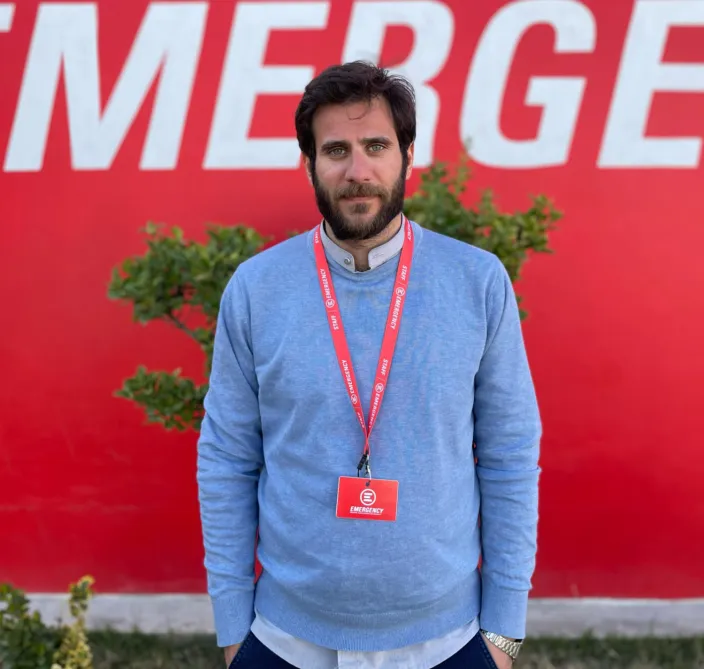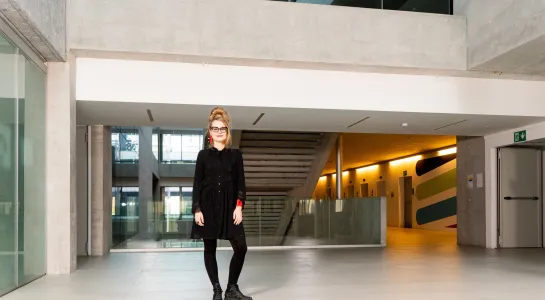
Credibility Is Earned in the Field
Ensuring medical care for everyone, regardless of political factions and power rivalries, making it clear from the start that they do not take sides: this is how Emergency has carved out a reputation for credibility over the many years of humanitarian work in war zones (and not only there): “Independence mixed with neutrality, this is the distinctive character of Emergency. We enter a country with the sole goal of giving people in need medical treatment,” explains Simone Sposato, a 31-year-old Bocconi alumnus who is Deputy Country Director for Emergency in Kabul.
What does your role in Kabul consist of?
Alongside the Country Director, I am responsible for the entire Emergency project in Afghanistan, where the organization has been present since 1999. The project involves the presence of Emergency hospitals in three cities – two Surgery Centers for war victims in Kabul and Lashkar-gah, a Surgery and Pediatric Center and a Maternity Ward in Anabah – plus 40 emergency clinics and basic healthcare centers in the whole area providing 24-hour emergency care, seven days a week. Overall, since the creation of the various facilities, almost one and a half million patients have been treated in hospitals and 6 million have been seen in clinics.
How do you interface with the country's institutions to put your mission into practice?
There is a constant dialogue with local institutions, which is not always easy and linear. When we arrive, we sign a memorandum of understanding with the country’s Minister of Health, which clarifies exactly what the scope of our intervention is. Here in Afghanistan the relationship is very good, also because we were the only NGO that chose not to leave the country, neither in 2001 (after the attack on the Twin Towers and the subsequent invasion of the country) nor in 2021 (with the rushed withdrawal of the international forces and the return to power of the Taliban). When we intervene in a place we restore existing hospitals or build new ones: the idea is to give the country the knowhow and facilities to train doctors, nurses and staff on site and allow them to practice medicine. In Afghanistan we have four specialization schools (in surgery, pediatrics, gynecology and obstetrics, and anesthesiology) and we are actually training the new generation of Afghan doctors. And we could be the first NGO to have a woman specialize in anesthesiology in Kabul.
Do you hire local staff?
60% of the medical staff are nurses: at the beginning the majority came from abroad, now they are all local. Looking at the total number of employees today, 1,758 are local and only about 50 are foreigners. In Kabul, the medical coordinator is also local. Our final goal is to leave the country, leaving a legacy of autonomous functioning facilities which are managed by competent personnel.
What are the main challenges in your activity?
Economic challenges are paramount. The fundamental problem is to persuade institutional donors that Afghanistan still has a tremendous need for resources: donors' radars often look at either countries at war or at least developed countries, while today Afghanistan is in a transitional situation. Although there is no active war, most of our health interventions are still linked to the war: mine wounds, unexploded ordnance and the presence of a high level of crime. And, as always in all wars around the world, 90% of the people affected are women and children, contrary to what is usually thought. We have limited resources and sometimes, chatting with colleagues from other NGOs, I see that others are surprised to hear how we make do with the little resources we have.
Let's talk about you: you arrived in Kabul in January 2024. But how did you end up at Emergency?
I graduated with a degree in business management from Bocconi, but I have always had a strong interest in public institutions and healthcare. After graduation I joined a company, but after eight or nine years at my job, taking stock of my life as I turned 30, I asked myself: "Is this really what I want?" The answer was no. What really makes me happy is helping others and I have always had Gino Strada as a personal hero and point of reference. The night before my first interview with Emergency I understood that it was the right path for me to take. It was my first experience in the nonprofit sector and everything was new to me.
